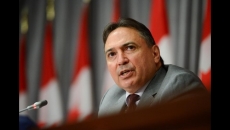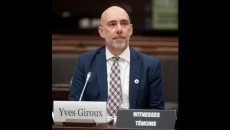A new survey indicates Atlantic Canada is largely opposed to lifting travel restrictions for Canadians who live outside the region.
More than 3,300 Atlantic Canadians participated in the Narrative Research online survey between Aug. 5-9. The results, published Thursday, indicate more than three-quarters of respondents were opposed to lifting 14-day quarantine requirements for visitors from the rest of Canada within the next month.
COVID-19 numbers have remained low across the four provinces this summer. In July, Atlantic Canada created the so-called travel "bubble," which waived the 14-day self-isolation rules for residents of the region who enter into Newfoundland and Labrador, Nova Scotia, New Brunswick and Prince Edward Island.
Margaret Brigley, CEO of Halifax-based Narrative Research, said measures to suppress the novel coronavirus have paid off and put the region in an "enviable position," but the survey results, she added, show Atlantic Canadians are uncomfortable with the perceived risks of accepting more visitors.
"Findings suggest that residents are not confident that safety measures in place would protect us from a viral spread if borders were to open," Brigley said Thursday in a statement.
Opposition to opening up the travel bubble was highest in Nova Scotia, at 80 per cent.
Eighty-eight per cent of Atlantic Canadians completely oppose opening Canadian borders to the United States within the next month. Seventy-nine per cent of respondents said they had not left their home provinces since Atlantic Canada created the travel bubble.
Prince Edward Islanders were most likely to have travelled within the Atlantic region, at 38 per cent, while Newfoundlanders and Labradorians were the least likely, at seven per cent.
People who had travelled within the Atlantic bubble were more likely under the age of 55 and higher income earners. Of those who travelled, 87 per cent said they were satisfied with the arrangements by the region's provincial governments.
The survey does not have a margin of error because it used a non-probabilistic sample of respondents.






